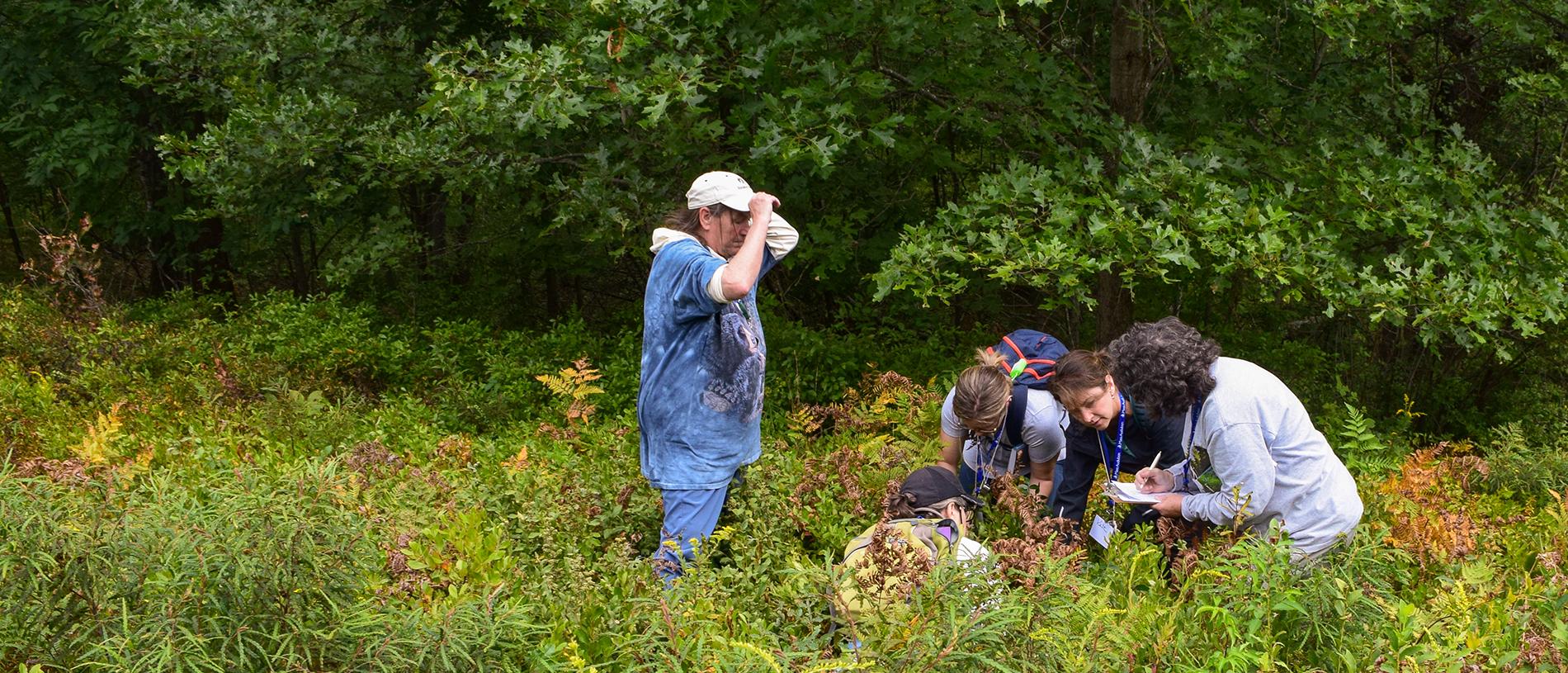Adult Learning
Field Naturalist Certificate Program
Become a certified Mass Audubon Field Naturalist! During the 12-week Field Naturalist Certificate Program (FNCP), you'll gain in-depth knowledge of organismal groups and how they are connected while taking part in field research, monitoring, and communication training.
As a Mass Audubon Certified Field Naturalist, you will make a difference in your community through a volunteer service project that supports local natural resources. Upon successful completion of the classes, fieldwork, and volunteering component, you will receive certification, signifying your expertise as a Field Naturalist.
Program Details
We currently offer two 12-week sessions each year, Spring and Fall. Generally, spring sessions run from late March into June, fall sessions run from early September into November. The course consists of 12 Wednesday evening online presentations and 6 day-long Saturday field outings at various sanctuaries. Each season we rotate field days to different areas of the state.
| Spring 2026 Course begins March 18, 2026. |
|---|
Learn more & register (or join the waitlist):
|
| Fall 2026 Course begins September 2, 2026. |
|---|
Registration will open in March 2026. We will once again offer two regional cohorts:
|
Get early notification when registration opens for next season! Add your name to the list at the bottom of this page and you will be contacted via email when registration opens for a new season, before it is available to the general public. These emails typically come about 3 or 4 months before the course begins.
Fee*
$1,795
* This course is a Member Benefit. If you are not already a Mass Audubon Member, you may join when you register.
Course Goals
- Understand and be able to articulate the importance of sound ecological management principles, climate change resilience, and land protection.
- Sharpen your ability to advocate for the environment.
- Develop a sound base of knowledge of Massachusetts ecology and natural history.
- Learn field research techniques and methodologies.
- Gain the skills to continue learning about the environment on your own.
Who Should Attend
This college-level course is geared to anyone looking to gain deeper knowledge of the natural world in a professional setting. Ideal for those who want to take a more active role in habitat management, educational programming, advocacy, and community science as a volunteer, or for those that are beginning a career in the environmental field.
Sample Schedule
- Wednesday 1, 6:30-9:00 pm: Coffee Hour & Introduction
- Wednesday 2, 6:30-9:00 pm: Introduction & Connecting with Nature as Lifelong Learners
- Wednesday 3, 6:30-9:00 pm: Ecology
- Saturday Field Trip 1, 9:00 am-4:00 pm: Covering content from Class 2 & 3
- Wednesday 4, 6:30-9:00 pm: Mammalogy
- Wednesday 5, 6:30-9:00 pm: Freshwater Ecology
- Saturday Field Trip 2, 9:00 am-4:00 pm: Covering content from Class 4 & 5
- Wednesday 6, 6:30-9:00 pm: Ornithology
- Wednesday 7, 6:30-9:00 pm: Dendrology
- Saturday Field Trip 3, 9:00 am-4:00 pm: Covering content from Class 6 & 7
- Wednesday 8, 6:30-9:00 pm: Entomology
- Wednesday 9, 6:30-9:00 pm: Herpetology
- Saturday Field Trip 4, 9:00 am-4:00 pm: Covering content from Class 8 & 9
- Wednesday 10, 6:30-9:00 pm: Mycology
- Wednesday 11, 6:30-9:00 pm: Botany
- Saturday Field Trip 5, 9:00 am-4:00 pm: Covering content from Class 10 & 11
- Wednesday 12, 6:30-9:00 pm: Climate Justice
- Saturday Field Trip 6, 9:00 am-4:00 pm: Covering content from Class 12
Questions?
Please email us.
Field Naturalist Certificate Program Interest List
Sign up to be alerted when the next Field Naturalist Certificate Program opens for registration.



